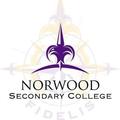Science

Year 7 & 8
Aims/Objectives:
- To enable students to acquire and use scientific skills and concepts
- To give students an understanding of the way Science and Scientists work in the community and help them make decisions about careers and further study
- To develop students’ ability to interpret and communicate scientific ideas effectively and to appreciate the role of Science in a social and technological environment
- To articulate Science values and accept the ethical principles embedded in scientific research
- To appreciate the significance of Science for the long-term future of our society.
Content:
- Biological Science
- Chemical Science
- Earth and Space Sciences
- Physical Science.
Tasks/Activities:
Students develop basic scientific skills through practical work and activities. Problem solving and analytical skills are also encouraged through a range of learning mediums. This could be through model making, use of software, multimedia and worksheets. Students may have the opportunity to participate in incursions and excursions.
Student Assessment:
- Written tests
- Practical work/Practical reports
- Assignment/Project
- Class work
- Stile lessons
Opportunities to extend learning:
Year 7 and 8 students will be given the opportunity to participate in an International Science Competition (ICAS).
STEM (Year 7)
Aims/Objectives:
- To provide students with the tools to enhance and enrich their learning using Science, Technology, Engineering and Mathematics skills
- To develop critical thinking and learning skills that foster creativity and innovation in decision making
- To build productive ways of working and solving problems individually and collaboratively
- To develop the capacity to constructively critique, evaluate and modify their own design process.
The aim is to assist students to develop competence in:
- Teamwork and collaboration skills including peer encouragement and feedback
- Critical and creative thinking skills including design iterations and ethical considerations
- Basic engineering and design processes including the use of CAD software for 3D modelling.
Content:
Students undertake a Curriculum program designed to explore the learning areas of Science, Technologies (Digital and Design) and Mathematics (STEM) in an integrated, interdisciplinary approach. Key STEM skills are developed such as problem solving, iterative thinking and design, and critical evaluation of research. Students are explicitly taught how to develop their capacity to implement these skills across a range of subjects. An emphasis is also placed on the development of teamwork and collaboration skills through ongoing group tasks and assessments.
Student Assessment:
- Response to real world potential STEM careers
- Design, construction and testing of a designed solution
- Exploration of historical and modern technologies through simple and complex machines
Year 9
Course Description:
In Year 9 Science, students will acquire and use scientific skills and concepts. They will develop their ability to interpret and communicate scientific ideas effectively to appreciate the role of Science in a social and highly technological society. Students will build on their understanding of the scientific method through practical work and explore the role of Science and scientists in the community to help make informed decisions about future career pathways.
Areas of study:
- Biological Sciences: Microbiology and Disease; Co-ordination and Control of Human Body Systems; Reproduction in plants and animals
- Chemical Sciences: Chemical Reactions; Atomic Structure and Radioactivity
- Physical Sciences: Heat; Energy Transmission through waves
- Earth and Space Sciences: Global Systems; The Carbon Cycle
- Science as a Human Endeavour: Scientific Theories and Models; The Scientific Method; Ethics of Animal testing
Assessment:
- Topic tests
- Practical work/Practical reports
- Assignments/Projects
- End of semester examination
